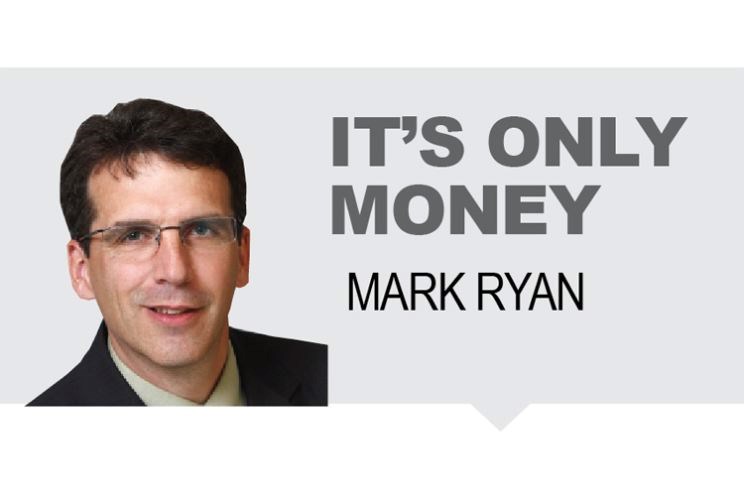In 1898, science fiction writer H.G. Wells imagined a sudden attack on London by powerful Martian techno-monsters, who obliterated everything in their path and drank the blood of their human victims. Forty years later, Wells' Martian story was recreated into a radio show, set in the U.S., starring the coincidentally-named Orson Welles. The radio play, which aired in October 1938, came at a time when Nazi aggression was at the forefront of Western psyche. Earlier that year, German troops had invaded Austria and the portent of Nazi aggression loomed large.
Famously, although the show was introduced as fiction, its delivery left many believing that the little green monsters were actually upon us. In the broadcast, the supposed regular programming was repeatedly interrupted with "emergency news bulletins," wherein the fictional Martian invasion gradually unfolded until these interruptions frantically took over the airtime entirely. The drama was so convincing it caused some to become hysterical and the police were even sent over to the radio station to quell the resulting mayhem.
The next day, the front page of the New York Times declared: "Radio Listeners in Panic, Taking War Drama as Fact." In Chicago, the Herald Examiner decried: "Radio Fake Scares Nation" and several others made similar claims. And thus the story about the story about the story became the story. At first, Welles was assailed as a crass opportunist, willing to sacrifice the peace and wellbeing of the nation for a buck. Later, he was proclaimed as a boy-wonder entertainment genius.
The broadcast has been the subject of no small amount of post-analysis. Originally thought to have panicked millions, most now agree that the actual impact was greatly exaggerated by the newspapers of the day, worried about increasing competition from radio. In fact, the show was not highly-rated at all and might have quietly stayed the second-rate Sunday night show it actually was, if not for the added press.
The victim here is our sense that we can trust what we read, see, and hear. This is not a small thing. The term Zombie Statistics refers to false data that successfully penetrate the collective psyche (antivaxers beware). Add Russian tampering with fake Facebook movements, and even purportedly influencing the Brexit vote a couple of years ago and pretty soon it starts to hit the wallet.
All of this can be unnerving for investors to say the least. Trillions of dollars every day change hands on the basis of the reliability of data and news. Not only must we strive to evaluate the right information, but there are extremely strict rules on who is allowed to trade on what information. A small sampling of these is listed here:
We advisors are not allowed to make personal investment decisions based on specific news in advance of our clients. Breaching this is called "front-running" and it is cause for immediate dismissal.
People who own significant portions of publicly-traded securities have similar, even more stringent rules restricting their ability to make trades based on news they are privy to. This is called "insider trading," and is what got Martha Stewart an opportunity to decorate her own jail cell a few years ago.
Government officials with advance access to macroeconomic data or pending regulatory changes must not personally benefit from it. Breaching this is called "another day at the office," for at least one world leader who shall not be named, but as a "conflict of interest," for most. Penalties can include jail time and significant fines.
We live in a data-driven world, but not necessarily fact-driven. A 12 year-old child can make wild and unverified rants about banks for 30 minutes and be hailed on social media as a financial genius. Thus, I'm actually a huge fan of print. They're far from perfect but at least their words are filtered by educational prerequisites, editorial oversight and a robust code of ethics.
Similarly, our RBC Code of Conduct (I'm sure every bank has a similar one) reads in part:
"Tell the truth.
"Our work places us in a position of trust. RBC clients, shareholders, communities and our colleagues rely on us to be honest and do business responsibly. We do what we say we will do and earn the trust and loyalty of our clients, shareholders, communities and colleagues."
Despite all the financial jargon we could throw at you, at the end of the analysis, we are salespeople - we sell trust and competence. If we don't have those, turn around and run the other direction as if a Martian invader threatens a painful death.
Mark Ryan is an investment advisor with RBC Dominion Securities Inc. (Member-Canadian Investor Protection Fund), and these are Ryan's views, and not those of RBC Dominion Securities. This article is for information purposes only. Please consult with a professional advisor before taking any action based on information in this article. See Ryan's website at: http://dir.rbcinvestments.com/mark.ryan



